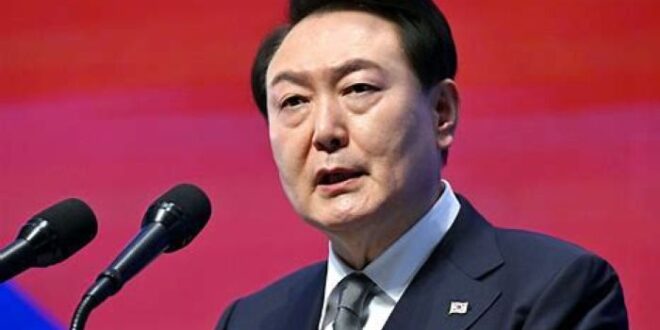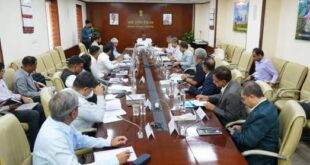In a dramatic escalation of political tension, South Korea has issued an arrest warrant for President Yoon Suk-yeol. The move comes amid an ongoing inquiry into allegations surrounding the potential misuse of power and a proposed imposition of martial law. This unprecedented development has sent shockwaves through the nation, raising questions about governance, accountability, and the future of South Korea’s leadership.
The Martial Law Allegations
The investigation centers on claims that President Yoon and his administration may have considered invoking martial law to suppress dissent during a period of political unrest. Critics allege that discussions about military intervention were aimed at consolidating power rather than addressing security concerns.
Key accusations include:
- Undermining Democratic Norms: Allegedly exploring military solutions to silence protests and opposition.
- Constitutional Violations: Potential breaches of South Korea’s democratic principles and legal frameworks.
- Abuse of Power: Using government institutions to pursue personal or political agendas.
Political Context
The arrest warrant comes at a time of deep political polarization in South Korea. Yoon’s administration has faced significant criticism for its handling of domestic issues, including economic challenges and social unrest. The allegations have further strained the public’s trust in the government, with many calling for greater transparency and accountability.
Reactions Across the Spectrum
- Opposition Parties:
Opposition leaders have welcomed the arrest warrant as a step toward justice, urging a thorough investigation to uphold the rule of law. - Supporters of Yoon:
Yoon’s allies have denounced the warrant as politically motivated, arguing that it undermines the presidency and destabilizes the country. - Public Sentiment:
Public opinion remains divided. While some see the warrant as a necessary action to preserve democracy, others fear it could exacerbate political instability.
Legal and Political Implications
- Possible Impeachment: If the charges gain traction, Yoon could face impeachment proceedings, further intensifying political turmoil.
- Precedent-Setting Moment: The case could redefine the balance of power between the executive branch and the judiciary in South Korea.
- Impact on Global Perception: The situation may affect South Korea’s international image as a stable and democratic nation.
What Happens Next?
President Yoon is expected to respond to the allegations in the coming days. Legal experts anticipate a lengthy judicial process, with significant implications for the country’s political landscape. Meanwhile, protests and demonstrations are likely to grow as the nation grapples with the unfolding crisis.
A Turning Point for South Korea
The arrest warrant for President Yoon marks a watershed moment in South Korea’s modern history. As the inquiry progresses, it will test the resilience of the nation’s democratic institutions and the commitment of its leaders to uphold justice.
Whether this development leads to greater accountability or further division, one thing is clear: South Korea is at a critical juncture, and the world will be watching closely.
 Business Sandesh Indian Newspaper | Articles | Opinion Pieces | Research Studies | Findings & News | Sandesh News
Business Sandesh Indian Newspaper | Articles | Opinion Pieces | Research Studies | Findings & News | Sandesh News



